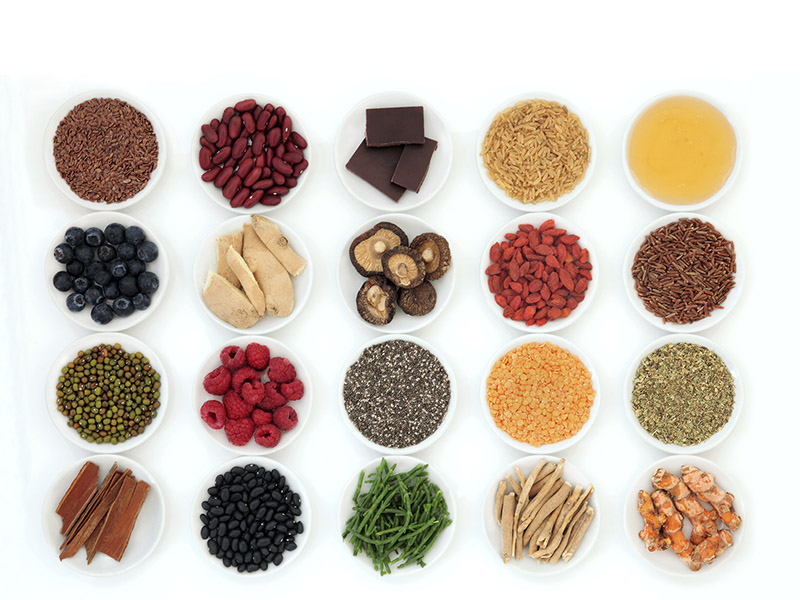Advertisements for foods and supplements may have you believing that antioxidants are the elixir of life with the ability to prevent cancer, heart disease, dementia, wrinkles and more. But what are antioxidants anyway, and where can you find them?
To understand how antioxidants work, think about what happens when you cut an apple. The fruit’s flesh browns when oxygen from the air reacts with compounds under the apple skin. An antioxidant, like vitamin C in orange juice, can slow the browning process. Vitamin C inhibits oxidative damage when the juice is sprinkled over the cut fruit. Antioxidants in the body react much the same way, protecting cells from oxidative damage caused by aging, pollution, toxins and even normal metabolism.
Antioxidant nutrients
A few years ago, scientists and health care professionals gave antioxidant status to quite a number of natural plant compounds. Today, we know that what looks like an antioxidant in the laboratory doesn’t necessarily act like an antioxidant in the body. Very few nutrients are accurately called antioxidants today. They are vitamins C and E, the minerals selenium and zinc, and the carotenoids such as beta-carotene, lycopene and lutein. Many of the compounds that we used to call antioxidants don’t even get absorbed into the body. Some of them, however, are broken down by gut bacteria. The new smaller compounds may or may not be absorbed. Since each person has a different makeup of bacteria in the colon, it’s impossible to know if identical foods supply the same absorbable compounds to each person.
Phytochemical compounds
Nature gave us a treasure trove of health boosters in fruits, vegetables, grains, nuts, legumes and other plant foods. In addition to vitamins, minerals, fiber, protein and unsaturated fats, plant foods provide thousands of phytochemicals. Phytochemicals, which means plant chemicals, provide the plant with color, aroma and flavor. Their function is to protect the plant from infection. In the diet, they work together and with other nutrients to fend off heart disease, cancer and other chronic health problems.
Some phytochemicals—like lutein in corn, peas, broccoli and kale, and lycopene in tomatoes and watermelon—have antioxidant activity. Others may protect health in different ways, such as stimulating the immune system, slowing the growth of cancer cells or tamping down insulin resistance.
Regardless of how phytochemicals protect health, the guideline to fill your plates with more plants than foods of animal origin is a smart one. And go for variety—lots of variety. Each fruit, vegetable, nut, et cetera provides a unique array of phytochemicals. Just like eating more of one vitamin to make up for a lack of another won’t help you, eating lots of foods rich in carotenoids won’t make up for the lack of phytochemicals uniquely found in broccoli, cauliflower and other cruciferous vegetables.
Antioxidant supplements
It may seem logical that if antioxidants and phytochemicals in foods protect health, then more in the form of supplements will be even better. Not so. Studies of antioxidant supplements consistently show no benefit and frequently show increased risk of harm, possibly because they overwhelm the body’s natural defense systems.
Bottom line
Eat more fruits, vegetables and other plant foods. Go for variety. Sprinkle herbs and spices on foods and slip leafy herbs into sandwiches and salads. This bathes your body in a host of nutrients, antioxidants and phytochemicals such as flavonoids, indoles, allyl sulfides, anthocyanidins and more. It doesn’t matter what they’re called. Just focus on bringing in more nutrient-dense foods and worry less about the individual nutrients.


